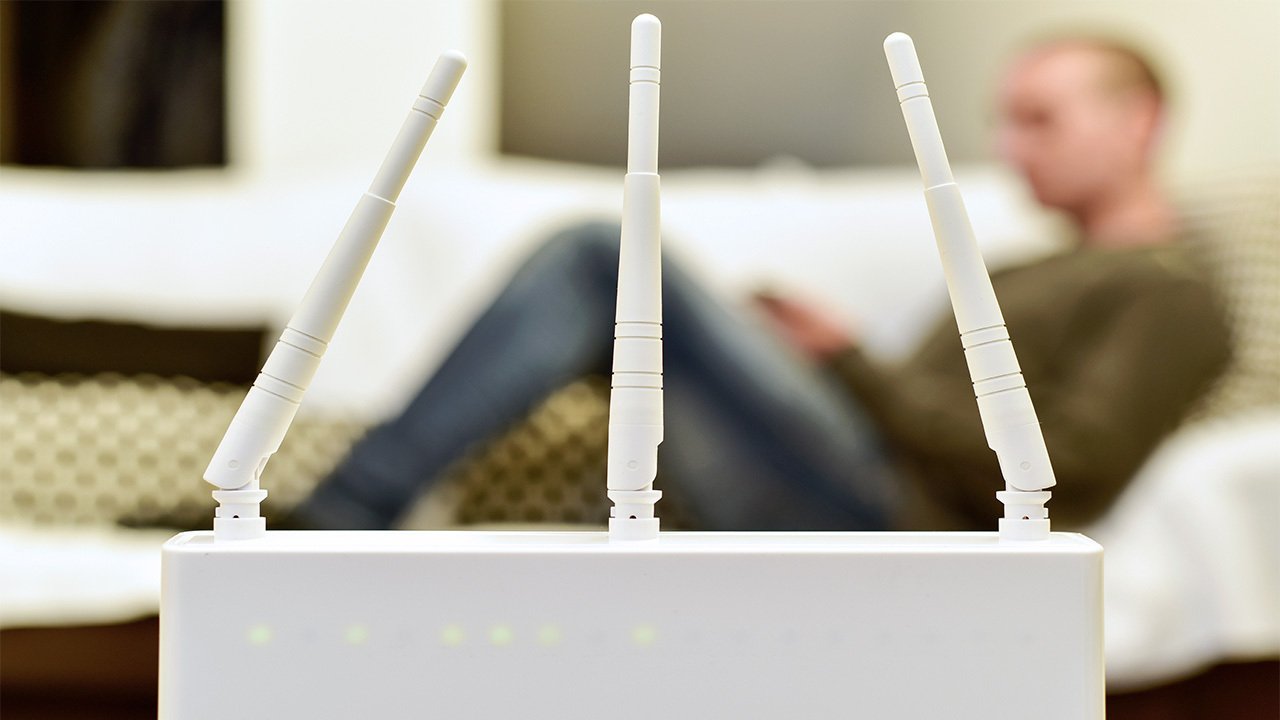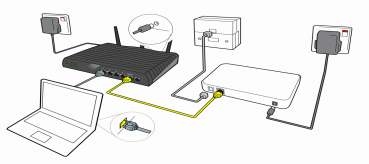Choosing the Best Wi-Fi Router for Your Home

Choosing the best Wi-Fi router for your home that is both dependable and fast, as well as providing excellent coverage, can be overwhelming, especially if you are a novice. When router makers characterize their products with a plethora of acronyms and marketing buzzwords, they make things more difficult for users. Furthermore, the product's name does not reveal anything about the router's quality.
Need Internet?
Call us at 1-888-317-7540 or search internet provider near you
Whether you're setting up new wireless for your home or upgrading an existing one, the wireless router is at the heart of the entire arrangement. It could mean the difference between an almost faultless network and one that frequently causes you trouble.
Related
Best Wi-Fi Service and Home Internet Providers of 2022
Don't be concerned! We'll assist you in selecting the best Wi-Fi router for your complete home based on your requirements and budget. Here are some pointers to consider while selecting a wireless device:
1. Your Router's Wi-Fi Speed Must Be Correct
When selecting a Wi-Fi router for your home, one of the most important considerations is the device's speed. Wi-Fi routers come in a variety of speeds, with the earliest being ‘G' routers that offer rates of up to 54 Mbps. Then there are ‘N' routers, which can transport data at up to 900 Mbps, and the later wireless AC routers, which can transfer data at up to 5300 Mbps.
Wireless G routers — These routers are designed for homes with little to no Wi-Fi use, such as one or two devices, restricted data downloads, and limited online video viewing.
Wireless N routers — These routers are designed for families with moderate to heavy Wi-Fi usage, such as three or more devices streaming online videos, downloading data, or playing online games.
Wireless AC routers – They'll be more useful in households with a lot of Wi-Fi activity, such as downloading large files or having multiple devices accessing gaming or video sites at the same time. Furthermore, its broader 5 GHz frequency bandwidth makes it ideal for densely populated places such as residences.
2. Single Band Routers Vs. Dual-Band Routers
Every router uses a frequency range with a band or bandwidth to deliver Wi-Fi signals. The activities you undertake, such as video streaming or email browsing, will determine whether you require a single-, dual-, or triple-band Wi-Fi router. The wireless device's band determines the speed and quality of your communication.
Single-band routers are not only affordable, but they also work with a wide range of devices. These routers offer weaker signals and slower speeds since they use a lower frequency that can easily pass through walls and other obstacles.
Dual-band routers have double the bandwidth, making them ideal for high-bandwidth applications such as next-generation smartphones and gaming consoles.
Tri-band routers have three times the bandwidth of dual-band routers. They also require a significantly larger initial expenditure. These routers not only give faster downloads and crisper signals from the finest Wi-Fi providers, but they also maintain greater speeds with multiple devices.
Related:
Best WiFi Router For Fiber Internet In 2021
Does Your Router Cause Slow Internet?
Can I use my own wireless router with Spectrum Internet?
Wi-Fi Problems? Signs That You Need to Replace Your Router
3. What Kind of Wi-Fi Coverage Do You Require?
The range of any Wi-Fi router is the greatest. As the signal travels further, it becomes weaker. Some rooms or locations have only sporadic or no coverage at all. If you want to know how powerful your router is, evaluate how far away you can get from your device while still getting a consistent and strong signal.
If you're having trouble with reliability, investing in a Wi-Fi signal booster for your home is the best option. Consider getting a Mesh Wi-Fi network if you're still having issues with your Wi-Fi connection or if there are "dead" spots in your home.
4. What is the size of the area you need to cover?
Do you live in a big house? If this is the case, it may cause issues with delivering the Wi-Fi signal to all of your devices. When using the 5 GHz spectrum, this is frequently the case. Using a single router with a robust set of antennae will be a sensible move for smaller homes or apartments. Also, there's no harm in trying things out before investing in something more expensive. Before making a purchase, it is usually a good idea to check reviews. This is the most effective approach to determine the router's range.
If you know you'll have trouble covering a broad area and don't want to spend the money on a single huge router, mesh Wi-Fi kits are a fantastic option. These systems operate together to give the Wi-Fi signal to a broad area, which can be thousands of square feet indoors. They've got everything in place. They're also a popular choice for smaller spaces.
5. How many devices will you be connecting?
Do you live on your own? Have a few devices that will be linked at the same time, such as a console and a phone, or a laptop and a streaming device? You won't have to worry about placing a lot of strain on your router for whatever reason. While you shouldn't get to the point where you can't connect any more devices, bear in mind that having a lot of connections at once will slow things down.
Your home is connected to the internet via a modem/router combo device. The Wi-Fi signal is then sent to devices such as cellphones, tablets, computers, and so on. The speed, range, and bandwidth of your router determine its capacity to broadcast your Wi-Fi signal. It's possible that a problem with your wireless router is causing your internet connection to be slow or inconsistent. If you're seeking a low-cost Wi-Fi service for your house, contact the top Wi-Fi service provider.
Related Posts

Tue, Mar 20, 2018 12:09 AM
Money SubscriptionHave the Digital News Subscriptions Lost Their Mind?
Netflix, Hulu, New York Times

Tue, Mar 20, 2018 12:18 AM
Broadband Deals Money SubscriptionHow Much You Are Pay Per Minute For Your Streaming
Are we happy paying subscriptions?

Tue, Mar 20, 2018 12:21 AM
Broadband Deals RegulationsWhat is Net Neutrality?
New Broadband Regulation

Tue, Mar 20, 2018 12:44 AM
Technology Broadband InstallationInternet Provider Installation FAQs
Guide to Internet Provider Installation

Mon, Feb 15, 2021 8:41 PM
Internet Bundles Broadband Deals MoneyUnderstanding Digital Divide and how is it impacting the internet
Millions of Americans still can not access the internet at a time when connectivity is increasingly critical. A year after COVID-19 forced the nation to function digitally, the digital divide, the division between individuals who have access to computers and high-speed internet and those who do not, is still blocking millions of Americans from working and studying at home.